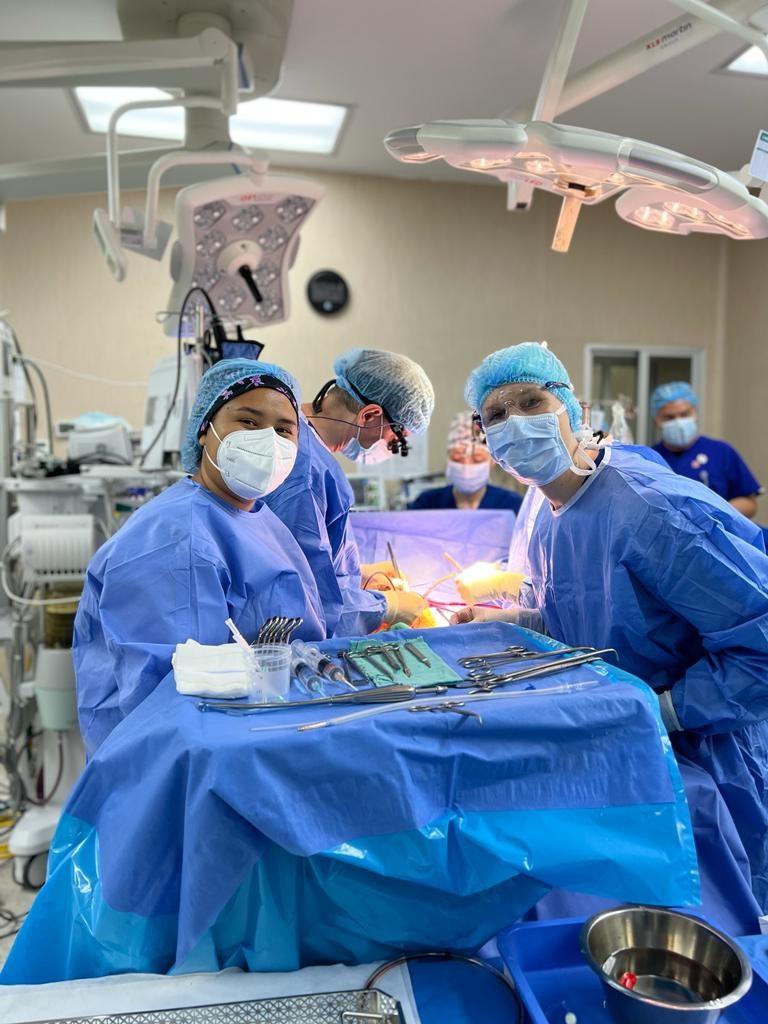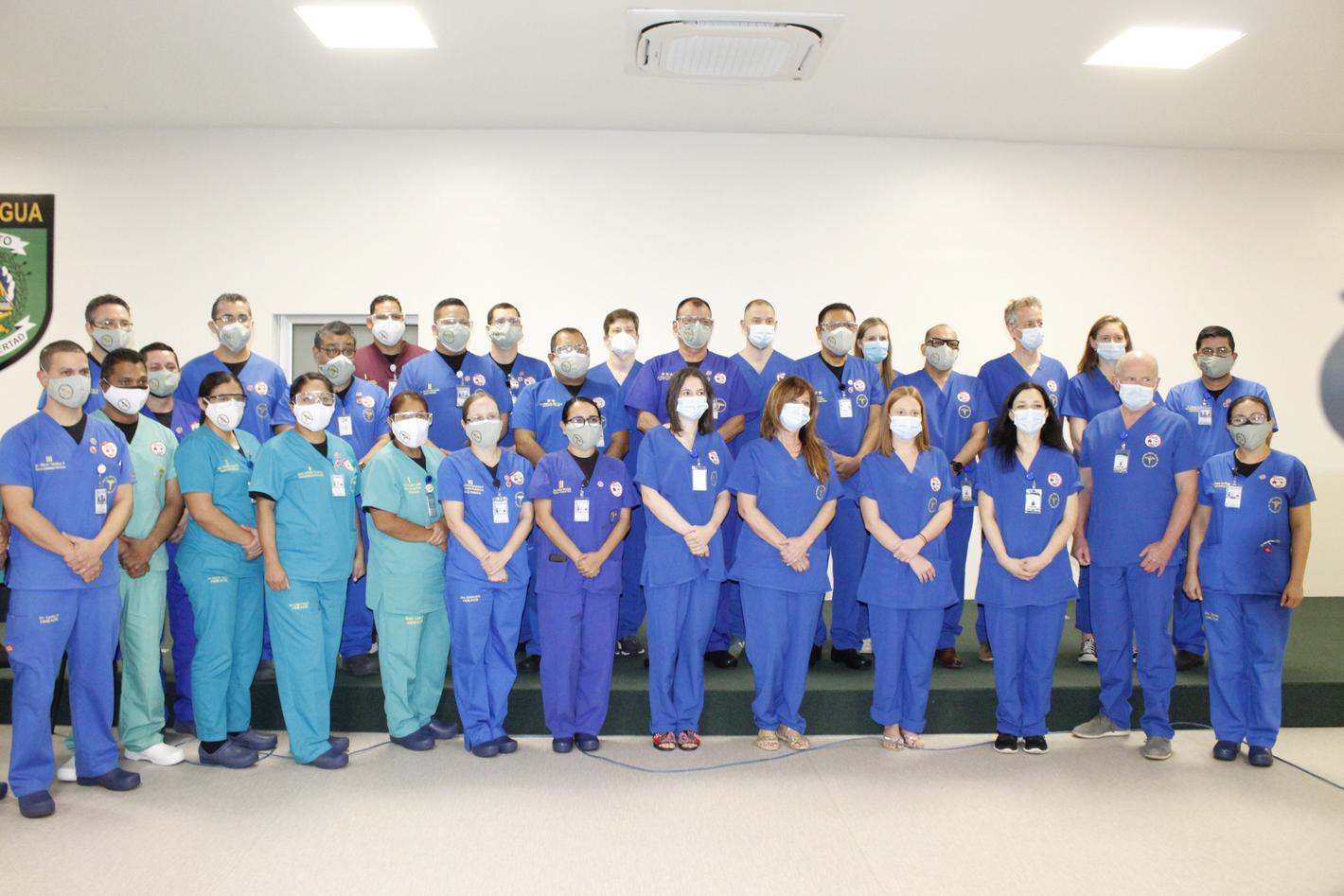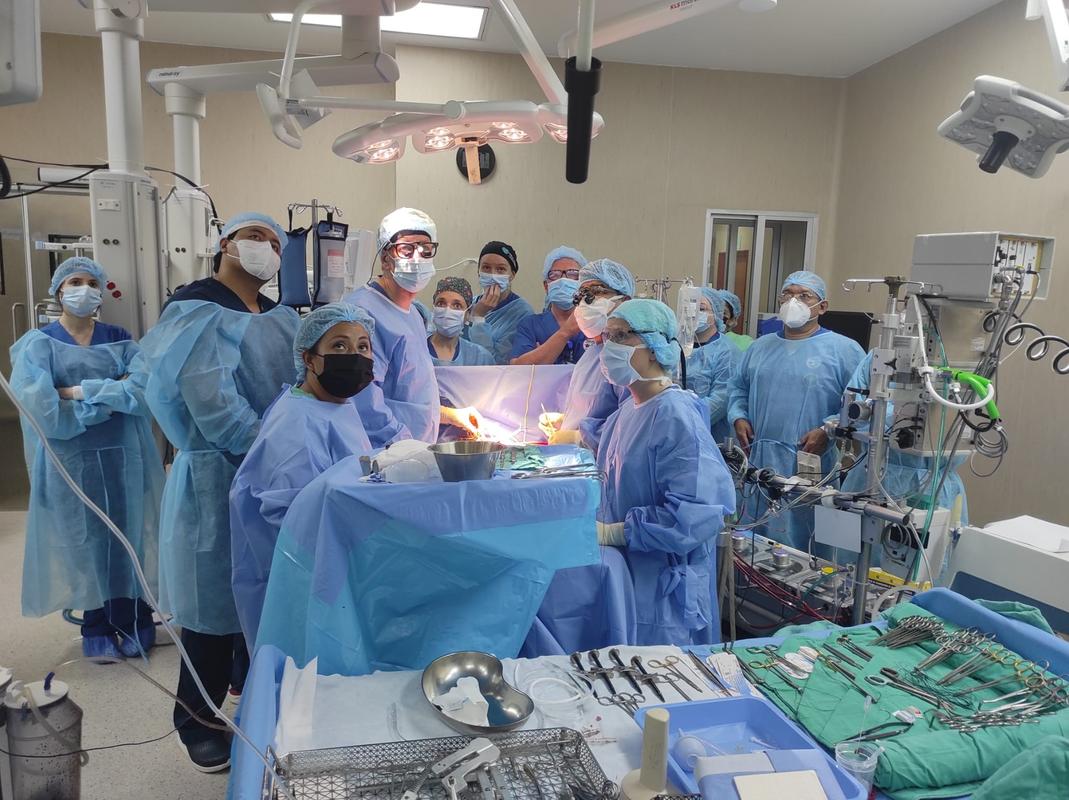Another way of working
“Upon arrival at the hospital in Managua, we were given an incredibly warm and sympathetic welcome”, Charlotte starts. “After half a day of recovering from the long journey, we set to work. Thanks to the help of the Spanish-English interpreters we quickly knew our way around the operating room. It was immediately hard work during the procedures, but the team gave it their all. The experiences we had - the good ones and less good ones, the easy and the more difficult procedures - created a type of togetherness that is hard to describe.”
It took some time for the UZ Leuven team to get used to the way of working in Nicaragua. “We are not used to the abundance of staff in the operating room”, Laurien explains. “It seems that the hospital is eager to help people into a job, because there was an awful of people around, each with their own little job: someone to wash the sternum, another for circulation, another to go get equipment … Fairly impractical. For us the job of circulation nurse is a lot more versatile, and thankfully so.”
In Belgium we're not used to the abundance of people in the operating room.Laurien Purnal, OR nurse
Another example? Charlotte: “Here in Belgium we are used to get something from the cupboard when it is urgent, but in the operating room in Nicaragua there was barely any equipment available. When we needed something, the nurse has to go an queue up at the front desk of the equipment room, a room in the middle of the operating room. Every needle, glove, thorax drain, pacemaker lead and compress are carefully kept, counted and given out when required. This did create some awkward situations ... You can imagine how slow time seems to go when you're waiting for urgent pacemaker wires.”
(continue reading under the picture)

In the operating room in Managua, Nicaragua
Limited means
Nicaragua may very well be Central America's largest country, but there is a lot of poverty. As a consequence, there is lot less means available for performing complex congenital surgery – the surgical treatment of congenital disorders - and doctors are also less experienced in this specialisation. And that is particularly sad for whoever urgently needs this type of surgery and its corresponding care.
“It is not always obvious to perform complex procedures with limited means, when you know deep down how much useful equipment we have at the ready in Belgium”, says Charlotte. “It makes you realised how lucky we are with our schooling, and as a result the wide choice of material and solutions we can offer when a procedure doesn't go as planned. Over here, we naturally reach for an ECMO device to give a struggling heart a bit of rest after a procedure, but in Nicaragua such a device is not available. It does make you think … Are we that well off? Or do they have it so bad?”
What if their cot had been in Belgium? This question kept reverberating throughout the mission.Charlotte Poedts, OR nurse
After a week it was time to say goodbye. “The days really did fly past”, according to Laurien. “But the gratitude from the hospital was enormous. The general of the New Military Hospital in Managua has even awarded us with a volunteer work certificate, during a press conference that was broadcasted live via YouTube. Obviously we are tremendously proud we were able to be a part of this team. With an unforgettable experience richer, we can now get on with our job at the operating room in Belgium.”
World Heart Caregivers
World Heart Caregivers is an international NGO with one mission: accessible cardiac surgical care for everyone. They send out volunteers to regions where medical care is needed the most and work together with local governments, organistations and educational institutions.

UZ Leuven team in Nicaragua
- prof. dr. Bart Meyns, cardiac surgeon
- prof. dr. Marc Gewillig, cardiologist
- dr. An Schrijvers, anaesthesiologist
- dr. Renata Haghedooren, intensivist
- dr. Joeri Van Puyvelde, cardiac surgeon
- Emmanuel Devolder, perfusionist
- Julie Jordens, intensive care nurse
- Ingrid Dekeye, IRC nurse
- Laurien Purnal, OR nurse
- Charlotte Poedts, OR nurse
